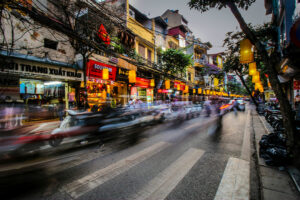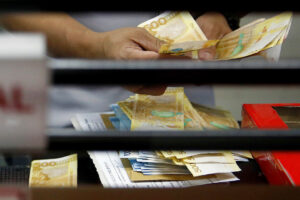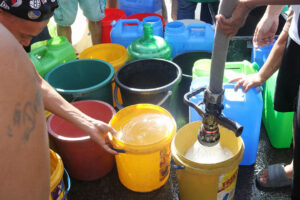HO CHI MINH, Vietnam — This is my third visit to our neighbor. Vietnam. I am on vacation with some of my former dormmates in UP Narra dormitory four decades ago. We brought our spouses. I even brought my eldest daughter. Special thanks to Pidro Sing for organizing this.
In GDP size at Purchasing Power Parity (PPP) values, in 2008 Vietnam overtook the Philippines and Colombia, and tied with Switzerland. That year, Vietnam and Switzerland had $445 billion while Philippines had $442 billion and Colombia had $444 billion.
Then Vietnam overtook Belgium in 2009. It overtook Malaysia and South Africa in 2016, Argentina in 2019, the Netherlands in 2020, Nigeria in 2022, and Pakistan in 2024. In 2024, Vietnam had a GDP (PPP) of $1.66 trillion and was 25th largest economy in the world while Philippines had $1.37 trillion and took the 31st spot. Vietnam’s economic expansion came fast and was fantastic, especially for a dirt poor and war-ravaged economy until 1975 when the US left and ended its brutal and barbarous invasion of about 13 years.
So far, I have made four foreign trips this year — Hong Kong and China last April, Spain last September, and will be going on my fifth and last trip to Japan today. All were work-related except the Vietnam trip. I have been to all the countries I mention in the table accompanying this piece, which compares the economies mentioned, and neighboring countries.
From 2004 to 2024 or over two decades, looking at GDP size at PPP values, China expanded 7.3 times, Vietnam expanded 5.4 times, and the Philippines and Indonesia 4.2 times. In merchandise exports, Vietnam expanded 15.3 times, China expanded six times, and Indonesia expanded 3.7 times. In FDI outstock, China expanded 69.3 times, South Korea 23.8 times, Singapore 10.7 times, and Japan and Taiwan 5.8 times.
In average GDP growth, China was the fastest growing with 10.3% from 2004 to 2013, and 5.9% in the next 10 years. Vietnam grew by a consistent 6% plus over a similar period. European nations have had the slowest growth pattern over the past three decades or so.
For foreign direct investment (FDI), I used the outward stock to see the level of capital-exports an economy has evolved (see the table).
I made a number of observations of Ho Chi Minh City (formerly Saigon), both the city itself and its rural villages, when we went to the Cu Chi tunnel which is more than two hours away from the city center.
One, the roads are smooth, I did not see a single pothole. Two, there were no tricycles, no jeepneys, no three- or four-wheeled e-bikes on the road. Three, there were many motorcycles and yet the drivers were well-behaved; every household possibly has a motorcycle or car. The locals hardly walk, the ones walking on city’s wide sidewalks are very likely foreign visitors.
Four, there were no barung-barong (shanties), at worst there were modest looking houses. Five, almost everyone seems to have a job, there were no people gathered like unemployed tambay making small talk near the roads. Six, almost all rural houses have fences and gates except those with shops, restaurants, or coffee shops; there are almost no stray dogs on the road. Seven, the aircon buses are locally manufactured (Thaco, Samco, Kim Long). Cars were mostly from Japan and Korea but there were many Vinfast cars too, made in Vietnam.
It seems that socialist Vietnam has a stronger private property system, has better rule of law than supposedly capitalist Philippines, and this allowed them to industrialize faster.
Among the tourist attractions we visited were the Cu Chi tunnel outside the city, and the War Remnants Museum in the city. The huge spent shells, tanks, and fighter jets left by the US forces during the Vietnam war, the photos and narratives of war and destruction gave the impression that the US invasion was barbarous, uncivilized, even demonic.
The murders and destruction caused in that war should be enough of a reminder to humanity that war and invasion should not happen again, that diplomacy should prevail in settling political and territory disputes between and among countries.
Meanwhile the planned “civil-military reset” of the Philippine government as reported by Senator Ping Lacson and other officials is a dangerous and evil project, where unelected, self-styled “reformers” from the military allegedly intend to grab political power from the current elected leadership and constitutional set-up.
Corruption occurs not only in government’s executive and legislative branches but also among the people and voters who think that education, healthcare, and cash for their children are not parental and personal responsibilities but are government responsibilities.
Electoral democracy is not a perfect system, but it is a far superior system than rule by self-styled reformers whose faces and real backgrounds are anonymous.
Bienvenido S. Oplas, Jr. is the president of Bienvenido S. Oplas, Jr. Research Consultancy Services, and Minimal Government Thinkers. He is an international fellow of the Tholos Foundation.






